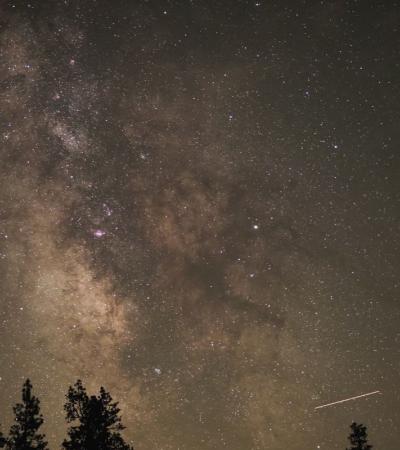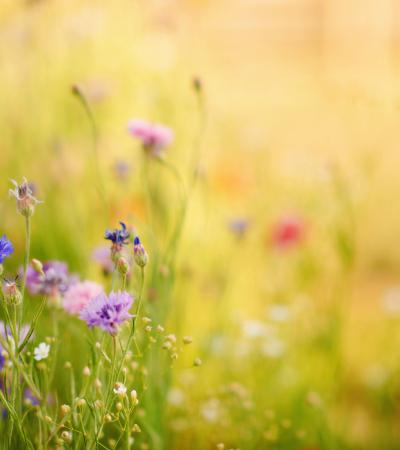Intergenerational
Southwest History: Preserving Chicanx, Latinx and Indigenous Peoples Stories
$2,501-5,000
Southwest History: Preserving Chicanx, Latinx and Indigenous Peoples Stories is an adult program/Summer Institute that was offered in-person at Colorado State University Pueblo and streamed online.
Focused on educational programming dedicated to the study and preservation of Chicanx, Latinx and Indigenous Peoples and environments of the Southwest, the full-day program consisted of panels of Colorado educators, presentations by museum and archives professionals and interactive exhibits to spotlight oral histories and artifacts.
Advanced Planning
The full-day Summer Institute had a planning committee made up of the Aztlán Center Co-Directors Tom Sommer and Charlene Garcia Simms, as well as Librarian Joelle Quigley. The CSU Pueblo Library Dean Rhonda Gonzales and Administrative Assistant Julie Stevens also assisted with supporting program activities.
Planning began in January 2022 to host the Summer Institute in August 2022 prior to the fall semester starting. We selected the 2022 Summer Institute theme of Southwest history and organized a first draft of the event itinerary at the beginning of the year.
In Spring 2022, we selected speakers, a date and booked the venue. The event was hosted on campus in the Occhiato Student Center Ballroom due to it being available for an all-day program for free. We notified parking and campus safety services of the event at this time. Over the next several months, the planning committee completed the following activities in preparation for this event:
- Contracted six guest speakers
- Reserved hotels as needed
- Booked catering using our campus vendor (Aladdin Catering)
- Confirmed presentation topics and collected slide decks
- Gathered and organized speaker biographies; printed biographies in branded pamphlets
- Created pre- and post-assessment surveys to include in our program evaluation
- Created an event with free tickets using EventBrite. Due to capacity restrictions, tickets were required
- Published social media posts
- Added and published information about the event on the Aztlán Center web page
- Created and distributed branded flyers both in print and digitally
- Created branded documents for the event and made packets for participants (e.g. itinerary, bios, etc.)
- Collaborated with our campus marketing department and other organizations to promote the event
- Designed and ordered Aztlán Center swag
- Booked vendors and exhibitors
- Finalized the venue layout
- Worked with our IT department to create a Zoom Webinar, including an event web page. IT staff oversaw the set-up of the Zoom webinar at the venue
Marketing
The CSU Pueblo Library promoted this event using branded messaging with the following tools: Facebook, Instagram, Twitter, the library website, flyers and email invitations.
Marketing included University Archivist and Aztlán Center Co-Director Tom Sommer being interviewed live on 9News in Denver to help promote the event. Based on our pre-assessment survey, the majority of participants stated that they learned about this event from social media, friends/co-workers, and by direct invitation from the planning committee.
Budgeting
We received ALA's Peggy Barber Tribute Grant for $2,500. We paid each panel member $75 using this grant ($225 total). We paid each presenter $350 ($1,050 total). We allocated $1,000 for catering since this was an all-day program. We spent $225 on marketing materials and event supplies.
Day-of-event Activity
This was a “sold out" free event. We sent participants with tickets an email prior to the day of the event with parking information, the event itinerary and dining information.
On the day of the Summer Institute, we had signage leading to the venue parking lot. We had two event volunteers who assisted us with parking directions. Two other volunteers supported a check-in table at the entrance to the building where we handed out university-branded red folders with the itinerary, speaker bios and a pre-assessment survey. Exhibitors and speakers had from 7:30 to 8:30 a.m. to set up. Doors opened to everyone at 8:30 a.m. for the exhibit hall, continental breakfast and coffee. See itinerary.
Dean Gonzales, Tom Sommer and Charlene Garcia Simms were the MCs for the entire event. IT supported and monitored our Zoom webinar.
The first activity was a mediated panel featuring Megan Friedel, interim co-director of rare and distinctive collections at the University of Colorado Boulder Libraries, Jay Trask, head of archives and special collections at the University of Northern Colorado, and Eric Carpio, chief community museum officer for History Colorado and the director of the Fort Garland Museum & Cultural Center. The planning committee decided to invite speakers from across the state, instead of exclusively from Pueblo. This created an opportunity for our local community to hear from several experienced professionals who work in archives, museums and educational roles outside of Pueblo. The questions that the panel addressed correlated with the questions asked in the pre-assessment survey, which focused on the importance of preserving and teaching Chicanx, Latinx and Indigenous Peoples history. The panel also spotlighted initiatives and contributions to preservation in Colorado.
The following activities included three presentations, an hour break for lunch by Aladdin Catering, and an hour break for viewing exhibits. The guest speakers had one hour each to present, including built-in time for audience Q&A.
- Virginia Sanchez was our first speaker presenting on From Archives to Attics: Locating and Preserving Forgotten History. Sanchez is an independent scholar, historian, genealogist and author. One of her published works is Forgotten Cucharenos of the Lower Valley.
- The second speaker was Lucha Martinez. Martinez is an archaeologist specializing in Mesoamerican and contemporary archaeology. She serves as an associate curator of Latino heritage at History Colorado and is also the director of the Chicano/a/x Murals of Colorado Project. Martinez’s presentation was The History and Preservation of Colorado’s Chicano/a/x Community Murals.
- Our final speaker was Nicki Gonzales. Dr. Gonzales is a professor of history, vice provost for diversity and inclusion at Regis University, and the Colorado State Historian. Dr. Gonzales’ presented on The Importance of Preserving Southern Colorado’s History.
All speakers were given thank you gifts (i.e. CSU Pueblo mug, tote bag and thank you cards).
Throughout the day, we had someone verify that slide decks were ready and water was available at the presentation lectern. We also had a slide deck that displayed sponsors and guest speaker photos during breaks and lunch. Planning committee members would hold up signage to communicate how much time was left for audience questions after presentations in order to keep the event on schedule.
Program Execution
The Aztlán Center Summer Institute had 150 participants, 85 in-person and 65 remote via the Zoom webinar.
This program had a 77 percent increase in participation from summer 2021 to 2022. This number, as well as a 77 percent increase in website visits from 2021 to 2022, demonstrates a growing awareness of the Aztlán Center, including current projects, events, research and curriculum development grant activities.
Based on responses to our pre- and post-assessment surveys, 100 percent of participants learned more about preservation and would attend an event hosted by the Aztlán Center again in the future. Additionally, 100 percent of respondents learned more about Chicanx, Latinx and/or Indigenous Peoples historical collections and projects in Colorado by participating in this event. Ninety-eight percent of survey respondents agreed that we should continue to preserve and teach about Chicano/a/x, Latino/a/x and Indigenous Peoples history.
These numbers support the Aztlán Center’s mission, impact and goals going into the 2022-23 academic year. Additional feedback shared in the post-assessment survey stated this event was “very important to their teaching and curriculum” and that it was “absolutely amazing” and “informative and interesting.” One event participant shared with a planning committee member, “last year was good, this year was excellent.” Due to the success of this event, the University Library will continue to host Aztlán Center programs going forward.
Advice
Several activities made a positive difference in the overall success of this event. One of these was establishing several partnerships with various professional and community-based organizations. Also, collaborating with our IT, marketing, facilities and catering services on campus made a big difference in ensuring that everything ran smoothly.
Having a short electronic and print pre- and post-assessment survey helped us gather feedback, evaluate impact and measure effectiveness. Participants recommended that we host a shorter event or series and offer more time for questions and discussion. For example, it was suggested that we shorten the lunch time from two hours to one hour to maintain the momentum of the event.



